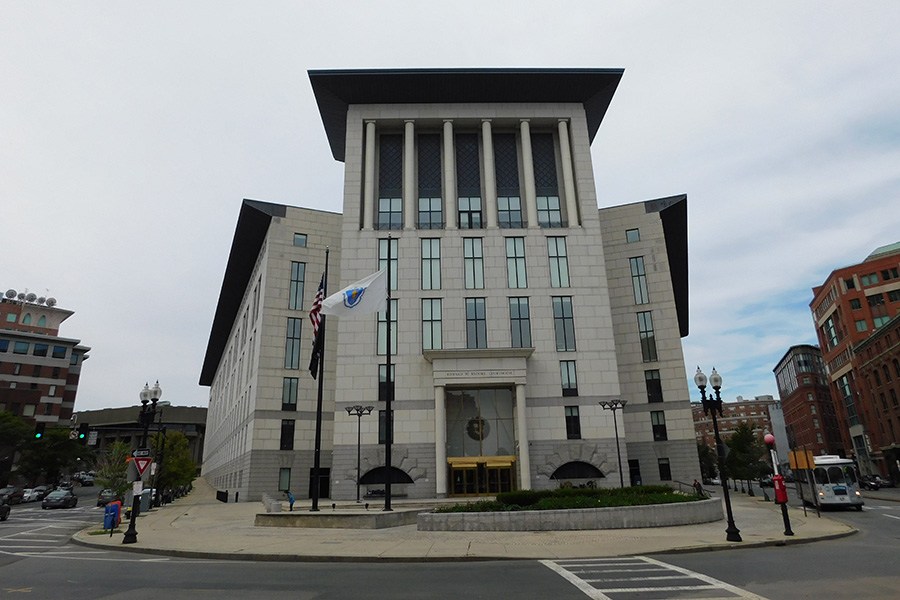The Straight Pride Judge Is Now Under Investigation
Richard Sinnott has faced questions over his handling of cases involving protesters at the straight pride parade.
First, he refused to accept Rachael Rollins’ requests to drop charges against Straight Pride counterprotesters. Then, he ordered a defense lawyer taken to a holding cell for reading case law in court. Now, he’s under investigation by the Judicial Conduct Commission.
As the fallout from the August 31 Straight Pride Parade continues to unfold, Boston Municipal Court Judge Richard Sinnott has found himself at the center of swirling controversy. As the judge ruling over many of the cases of those arrested at the event, Sinnott made several decisions that everyone from social media activists to Rollins herself have questioned—and it seems that higher-ups are taking those allegations seriously. On Tuesday, the Commission on Judicial Conduct, the state agency responsible for investigating complaints about misconduct by judges, announced that it has begun a probe into Sinnott’s handling of the counterprotesters’ criminal arraignments earlier this month.
Through a Massachusetts Trial Court spokeswoman, Sinnott told WBUR, “I look forward to a rapid resolution of this matter.”
The statement from the Commission notes two specific instances of Sinnott’s conduct. The first was his refusal to accept prosecutors’ requests to drop nonviolent charges against Rod Webber, who was at the Straight Pride parade to document the event. Boston College law professor Robert Bloom said this move by Sinnott was “kind of stepping outside the bounds of being a judge.”
Rachael Rollins later filed an emergency petition and asked the Supreme Court to intervene in the matter, saying Sinnott overstepped what he is constitutionally permitted. Justice Frank Gaziano sided with her, saying Sinnott had “no authority” in pursuing prosecution.
The second instance noted in the Commission’s statement was Sinnott’s detention of Susan Church, a defense attorney representing one of the charged counterprotesters. Church was reading case law that defended the prosecutors’ requests to dismiss charges when Sinnott ordered her held in contempt and taken to a holding cell, where she remained for hours.
“Placing lawyers in handcuffs who advocate strongly for their clients is the go to move of some of the worst regimes in the world,” Church tweeted after the news of the investigation broke yesterday.


